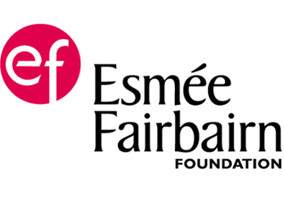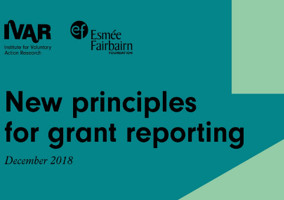There have been many excellent reports and articles written about core funding, so why have we at Esmée Fairbairn Foundation just published another one? Because, despite rising need and falling incomes in the charity sector, the overall amount of core funding has “remained reasonably consistent” over the past five years . It is not going up, and we want to help change that.
As a funder, Esmée backs remarkable organisations and people that are passionate and professional. We want to provide them with the right resources and believe that they know what that means. That is why we have offered core funding since our start in 1961 and, today, 64 per cent of our active grants (£92.7m) give core or unrestricted support.
Over the past three years, we’ve been gathering data and insights from over 600 grants and we think it’s important to tell others what we’ve learned. The report shares powerful feedback on the impact of core funding on outcomes and organisations, looks deeper at organisations we’ve core funded for ten years or longer, asks why we don’t give more unrestricted funding, is honest about the limits of core funding, and shares performance data on core and project grants.
We also make four recommendations for funders, including ourselves:
Invest in the ‘what’, and let organisations you fund determine the ‘how’
Most funders are not experts. We are confident that the organisations we fund know best how to plan and carry out their work. So why, as well-resourced charities ourselves, would we imply we know better what resources those organisations need to do that work? Why not let organisations choose the type of support that best fits?
Acknowledge your place in the complex jigsaw of funding
Consider whether you can really attribute the effect of your grant. How much does the impact of your grant depend on the contributions of others? What about the unintended negative effects of the way you fund - what is the transaction cost of your grant? How much time are the organisations you fund spending in re-applying, reporting and recruiting as a consequence of the way you fund?
Consider what barriers are real and what you’ve built for yourself
If you made more of your grants unrestricted, what might the consequences be? What are the reasons you are not doing this, and do they conflict with your strategy?Are you a high-trust funder with low-trust systems?
Make longer grants
The duration of a grant you make could be more important than the type of support you provide. For the organisations we fund, the restrictions around the grant could be less important than the security of multiple years of funding.
This report is for funders who care not just about the impact of what they fund, but the impact of how they fund. We also hope it will help provide the organisations out there doing the work the ammunition to continue to make the case for what they need to thrive.
Caroline Mason is chief executive of the Esmée Fairbairn Foundation the report is available on the funder's website.
Related articles












